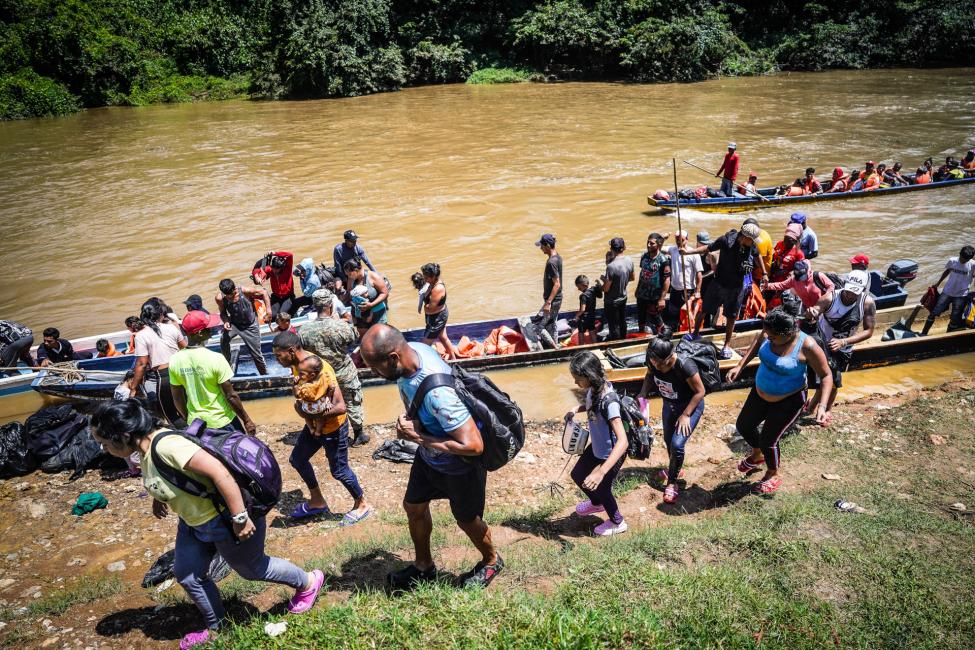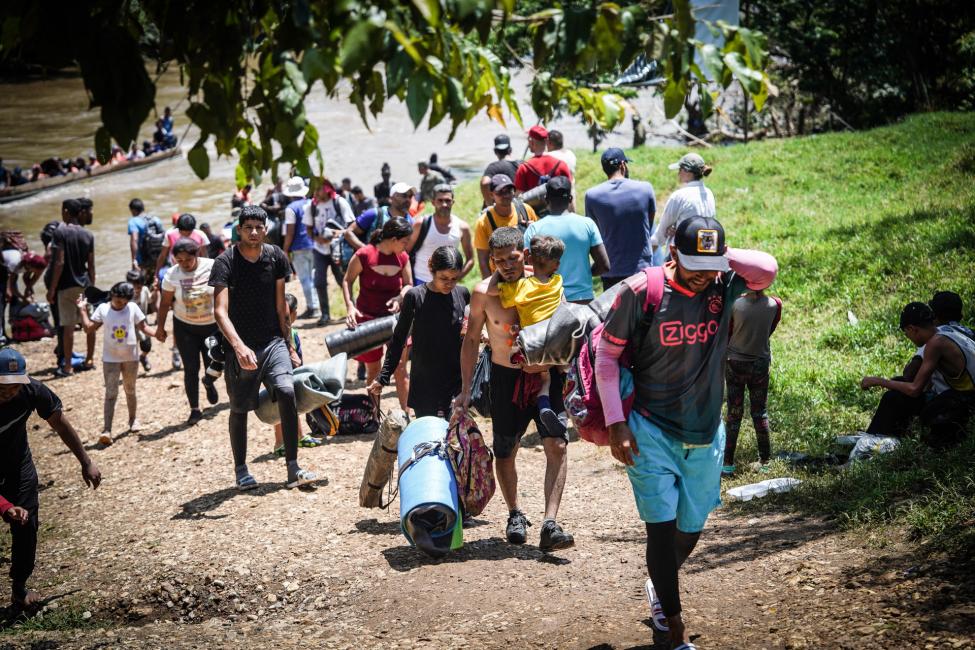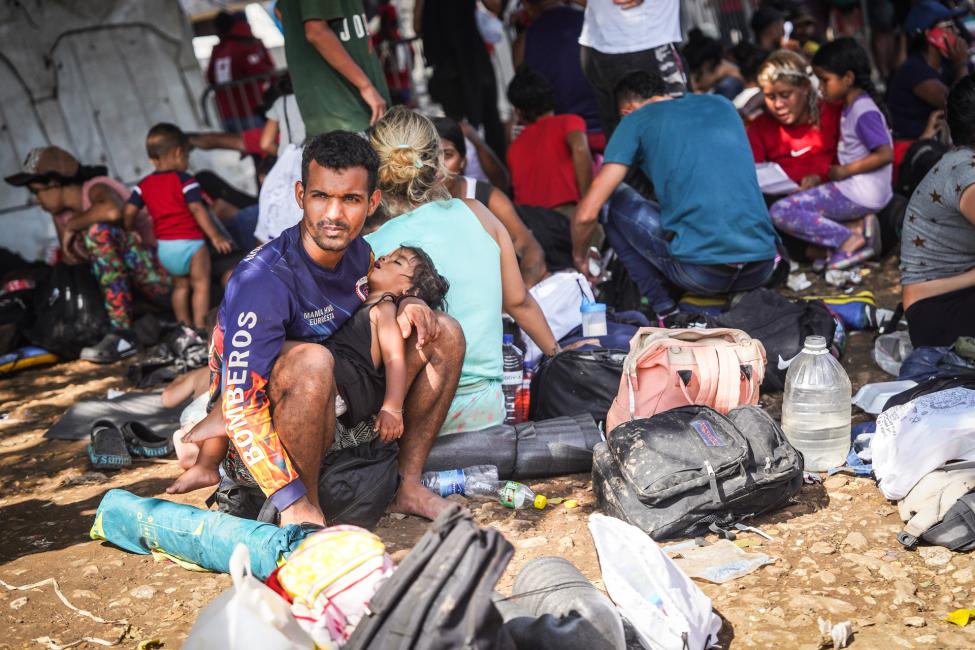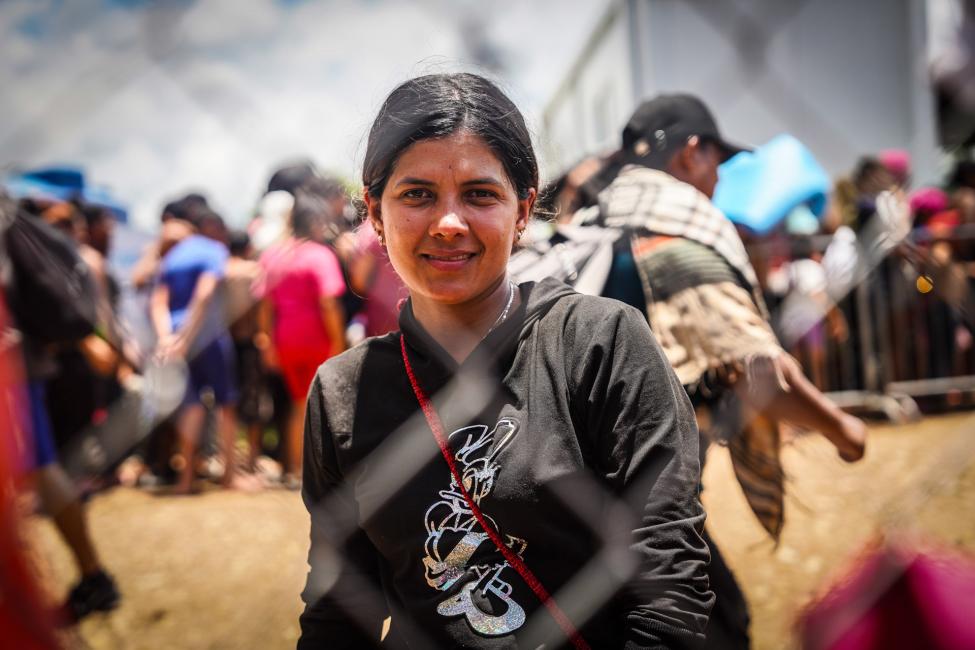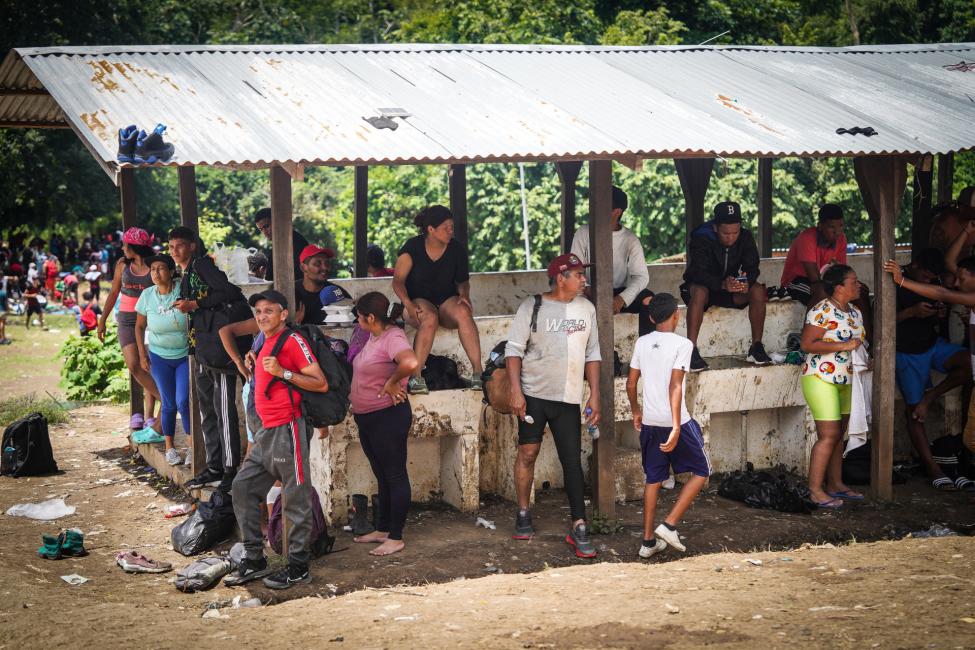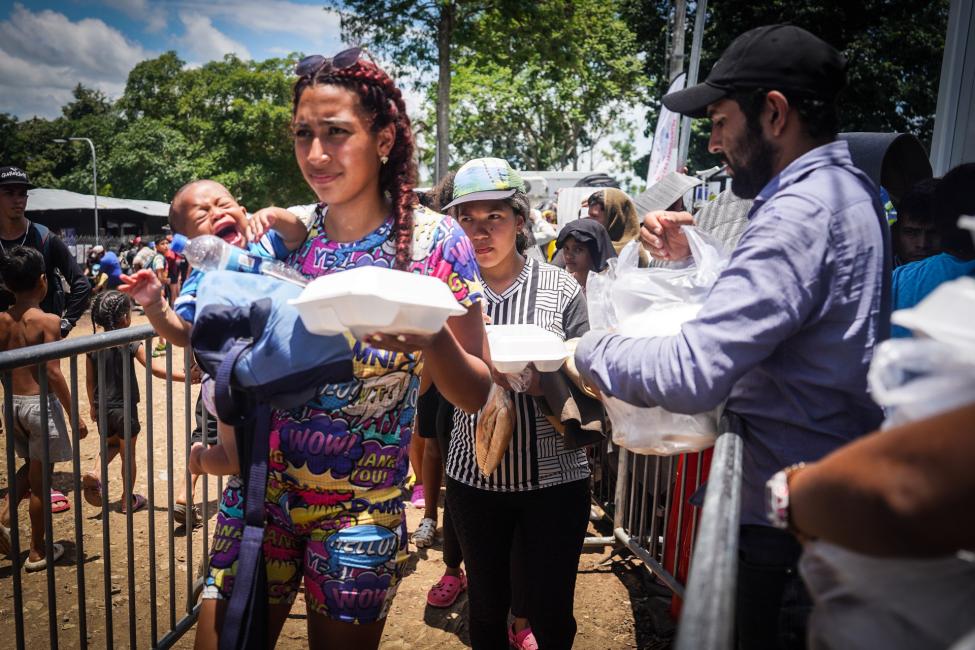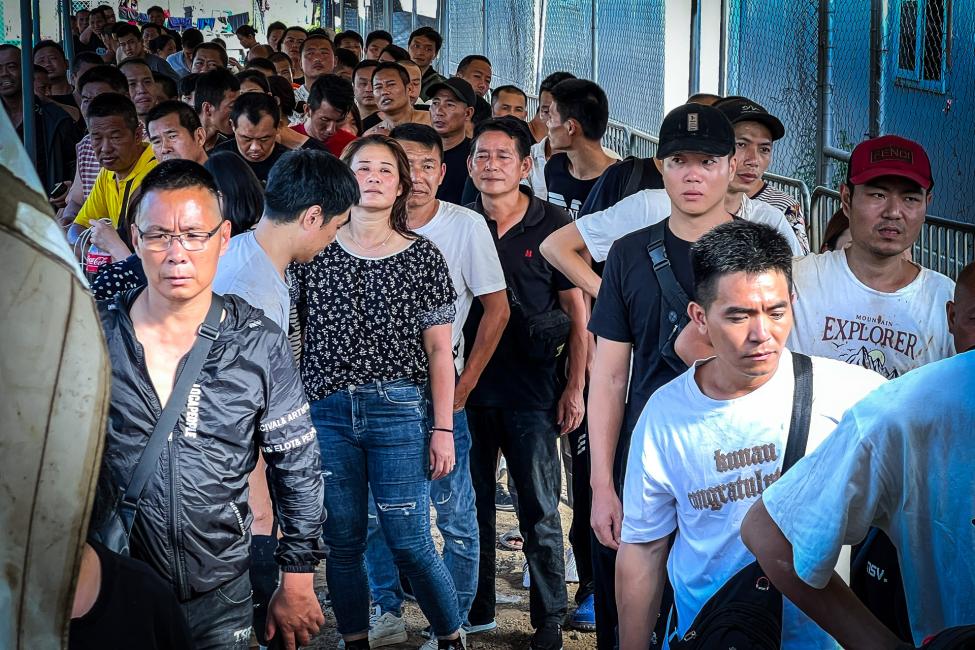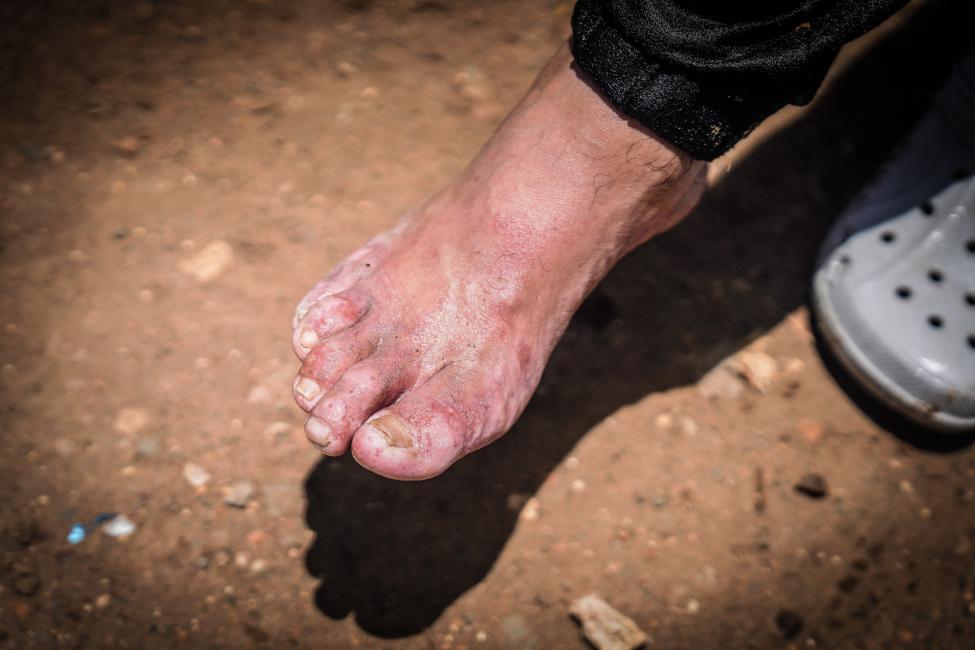-
Who we are
WHO WE AREFollowing the UN Secretary-General's request to IOM and UNHCR to co-lead the regional inter-agency response, the Office of the Director General’s Special Envoy for the Regional Response to the Venezuela Situation (OSE) was established in 2019 to coordinate IOM's assistance for migrants and refugees from Venezuela.
SOBRE NOSOTROS
SOBRE NOSOTROS
OIM Global
OIM Global
-
Our Work
What we doThe Office of IOM´s Special Envoy for Migrants and Refugees from Venezuela is responsible for the coordination and oversight of regional projects within the framework of Venezuela's Migrant and Refugee Response Plan (RMRP) in South America, North America, Central America and the Caribbean, working closely with implementing missions and Regional Offices.
PRIORIDADES TRANSVERSALES
- Where we work
- Data and Resources
- Take Action
- 2030 Agenda
San Vicente, 2 October 2023 – Etzaida Rios, 35, has seen firsthand the life-changing impact aid has had in her hometown, Meteti, in the Darien region in Panama. She works as an IOM Community Officer in a Temporary Migrant Reception Centre (ETRM) in San Vicente, one of the first points of arrival for migrants emerging from the Darien jungle, spanning the Colombia-Panama border.
She ensures migrants receive humanitarian assistance, information and psychological care after making the perilous journey, as they are often exhausted, malnourished, dehydrated or injured when they arrive at the centre. Despite these challenges, Etzaida strives to provide the migrants with hope, to connect and engage with them.
“People arrive with pressing needs and many questions,” Etzaida says after attending to Zuleybis, who fractured her leg while crossing the Darien with her husband José and four children. The Venezuelan family received treatment at the ETRM before continuing their path north.
“They want to tell me about their concerns, problems and journey through the jungle. I provide reassurance and information.”
Etzaida has worked with the International Organization for Migration (IOM) for the past four years. She previously served with local non-governmental organizations providing community care in the field.
“I feel that, when I speak to migrant women, they are more open to discussing sexual and gender-based violence or child protection with me than with a male colleague. It’s easy for them to approach me,” Etzaida explains near a bustling line of migrants.
However, when listening to the stories of people on the move, Etzaida sometimes finds herself overcome with emotion.
“The biggest challenge is witnessing suffering and hearing heartbreaking stories. While we see terrible things on television or read about them, it is even harder and more frustrating to see it with your eyes as it unfolds before you.”
A record number of migrants
The lack of roads, poisonous snakes, rugged mountains, raging rivers and groups of smugglers or criminal groups did not deter Zuleybis’s family from risking their lives, as thousands of desperate people from Venezuela, Haiti, Ecuador, and countries in Africa and Asia, do every year in search of a better future in the United States, Canada and Mexico.
According to the Panamanian authorities, over 350,000 people trekked the rugged rainforest on their route north in the first nine months of 2023, surpassing the 250,000 total recorded crossing the Darien in all of 2022. Many are women and children, as well as families with elderly people or people with disabilities, who are more vulnerable to violence and abuse and require greater protection. More than one-fifth of arrivals are children, half of whom are under the age of five.
According to IOM’s Missing Migrants Project, more than 327 people have gone missing or died crossing since 2014. However, most deaths and disappearances remain unreported due to the lack of official statistics and the region’s inaccessibility; many who emerge from the rainforest describe seeing decaying bodies along the route.
Reaching a safe space
The names “San Vicente” or “Lajas Blancas” might not ring a bell when thinking about famous destinations to visit in Panama. But for the more than 2,000 people who cross the Darien on an average day, reaching these sites means finally reaching safety. The reception centres here address their basic needs.
Under the scorching sun, Etzaida and the IOM team bear the long daily hours, keeping in mind their efforts can save people’s lives.
“A glimmer of hope shines through their tired faces as we provide them with help. Seeing them relieved is my greatest reward,” says DTM Officer Enrique Vargas while assisting Javier, a Venezuelan migrant who crossed the Darien on crutches with the help of friends. After undergoing surgery in Chile, Javier traveled for two months before arriving in Panama.
“The jungle is brutal; it's really, really tough,” recalls Javier, his head bowed, weeping. “The hardest part for me was climbing the mountains and crossing the river.”
Hygiene kits, blankets, protection and psychosocial support are provided to migrants by IOM in two reception centres in the Darien. IOM also supports the improvement of shelter infrastructure, provides technical assistance to strengthen capacities for the coordination and management of temporary accommodation, and develops communication campaigns about the risks linked to irregular migration.
Etzaida is moved daily by the stories she hears. “I will never forget a Haitian man who lost his wife in the jungle. He cried and cried; we all suffered while listening to him,” says Etzaida. “But we remain focused on our goal of helping and supporting, even when the pain is unbearable.”
This story was written by Gema Cortes, IOM Media and Communications Unit, Office of the Special Envoy for the Regional Response to the Venezuela Situation.
